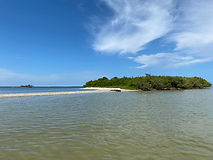Quantitative Ecology
Data Management, Analysis, & Visualization
Mentoring & Advising

Bio
Hello,
I am Tyler Steven Coleman, a postdoc in the Department of Biological Sciences at Southeastern Louisiana University. I received my Ph.D. in the Florida Cooperative Fish and Wildlife Research Unit at the University of Florida, working with Dr. Andrew Carlson as a fellowship awardee. Originally from New York, I moved to Tennessee, played D1 collegiate baseball, and received a B.S. in Wildlife and Fisheries Sciences from Tennessee Tech University (TTU). While attending TTU, I worked with Tennessee State Parks, the TTU Cooperative Fishery Research Unit, and the Tennessee Wildlife Resources Agency on various taxa and projects (e.g., silver carp, trout spp., aquatic invertebrates, timber rattlesnakes). I moved to Florida before my graduate work at Auburn University to work with the Florida Fish and Wildlife Conservation Commission Freshwater Research Institute as a Fish and Wildlife Biological Scientist. I worked on fish population assessments, trophy-sized largemouth bass radio telemetry, fish stocking evaluations, and alligator mercury sampling.
For my M.S. at Auburn University, advised by quantitative specialist Dr. Matt Catalano, I assessed how populations of an apex freshwater predator respond when released from density–dependent competition in small impoundments. Auburn allowed me to grow as a quantitative ecologist and to assist and learn from projects involving fish passage, otolith microchemistry, physiology, the microbiome, population assessments, and much more. I will be forever grateful for this experience. War Eagle!
At the University of Florida, I explored modeling fisheries as coupled human and natural systems for research, management, and policymaking. More directly, my research expanded our knowledge of centrarchid fisheries ecology and management in Florida. My research also yields an understanding and supports an emerging metacoupling framework (Carlson et al. 2020), highlighting the advantages of integrating the ecology, socioeconomics, and public importance of worldwide centrarchid fisheries.
Since beginning my journey in this field, my dedication to the work and motivation to grow has led me to exceptional projects and experiences. I’m grateful for a profession I’m passionate about, and I am proud to share examples of my most excellent work. I take pride in the work that I do and in the long-term relationships that I’ve built with my colleagues. I use an all-encompassing active learning framework incorporating inquiry-based, student-centered, group learning activities and Socratic questioning for my mentoring, advising, and teaching philosophy. I firmly believe in working hard, working together, and having fun along the way.
“The study of nature is a limitless field, the most fascinating adventure in the world.” – Margaret Morse Nice







